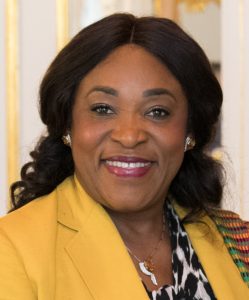Closing statements begin in the trial of Central African Republic rebels at the Hague
3 min readClosing statements began on Monday in the trial of two alleged leaders of a predominantly Christian rebel group from the Central African Republic (CAR) at the International Criminal Court (ICC) in The Hague. Prosecutors are confident that Patrice-Edouard Ngaïssona and Alfred Yekatom, also known as “Rambo,” are guilty of multiple war crimes and crimes against humanity. The two men are accused of involvement in atrocities committed during the country’s brutal civil conflict between 2013 and 2014.
Ngaïssona, the former president of the CAR football federation, and Yekatom, a former militia leader, face charges for their roles in the anti-Balaka rebel group, which engaged in violent confrontations with the predominantly Muslim Seleka rebel faction. The charges against them include murder, torture, and attacks against civilians. These crimes occurred during the violent period following the Seleka group’s seizure of power in the CAR in 2013.
Deputy Prosecutor Mame Mandiaye Niang made closing statements to the court, asserting that the evidence presented over the course of the three-year trial clearly demonstrated the guilt of both accused men. “For us, impunity is simply not an option. And even less so in this case,” Niang said. “The evidence presented for this case has established the guilt of the two accused for the crimes charged.”
Ngaïssona and Yekatom have both maintained their innocence throughout the trial, which is the first to focus on the violence that erupted after the Seleka’s rise to power in CAR. The conflict displaced thousands of people, with fighting predominantly occurring between the Muslim Seleka forces and the Christian anti-Balaka militias, who also targeted civilians during their campaign. The trial is seen as a significant moment in holding accountable those who led and incited violence during this period.
The two men face serious charges, with both potentially facing life sentences if convicted. The prosecution’s case relies on evidence that includes testimonies, documents, and reports indicating the direct involvement of Ngaïssona and Yekatom in directing and encouraging the violence. The trial itself, which has been ongoing for three years, is a part of the ICC’s broader efforts to address the atrocities committed during the CAR conflict, which has been marked by widespread human rights abuses.
The conflict began in 2013 after the Seleka, a coalition of Muslim rebel groups, seized power from then-President François Bozizé, a Christian. The anti-Balaka militias formed in response, composed primarily of Christian fighters who targeted Muslim civilians in retaliation. This created a sectarian divide, with much of the violence taking on a religious dimension. The situation led to widespread destruction and the displacement of many, especially Muslims, from the capital, Bangui.
The International Criminal Court has been investigating the CAR conflict since its escalation in 2013, and the current case against Ngaïssona and Yekatom is just one part of a broader effort to hold individuals accountable for the atrocities committed. The violence in CAR has resulted in severe human suffering, with both sides of the conflict responsible for various war crimes and crimes against humanity.
In addition to the charges against Ngaïssona and Yekatom, the ICC recently unsealed an arrest warrant for Edmond Beina, a commander of anti-Balaka fighters. Beina is accused of leading a group of fighters who murdered Muslims in a western village in early 2014. The case highlights the continued efforts of the ICC to address the widespread violence that plagued the CAR during this period and to bring those responsible to justice.
As the closing statements conclude, the court’s decision will be closely watched as it could set a precedent for future trials related to the CAR conflict and other international crises. The case against Ngaïssona and Yekatom marks an important chapter in the ICC’s ongoing work to tackle impunity for war crimes and crimes against humanity. Regardless of the verdict, the trial represents a significant step in the global effort to hold individuals accountable for their roles in fueling violent conflict and violating human rights.
The trial’s outcome could have lasting implications for both the Central African Republic and the broader international community, highlighting the ongoing struggle for justice in post-conflict societies and the role of international courts in upholding human rights.






